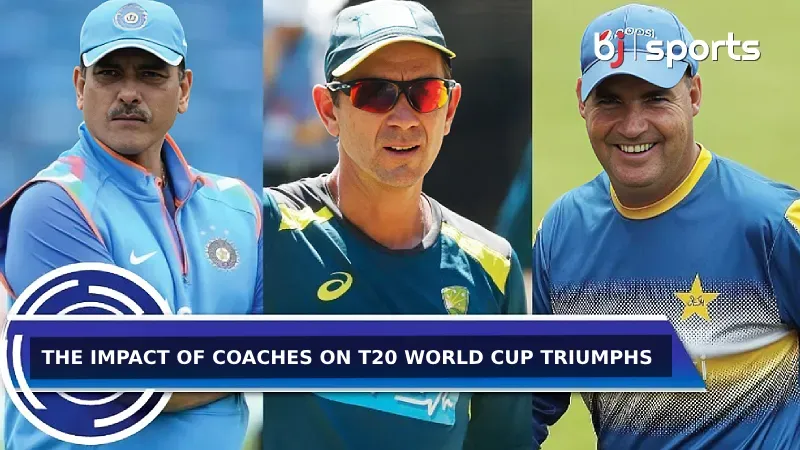The T20 World Cup is a high-pressure tournament that brings together the best cricketing nations to compete for glory. While players take the spotlight, it’s important not to overlook the crucial role of coaches in a team’s success. Coaches play a significant part in strategizing, mentoring, and nurturing players, helping them develop their skills and perform at their best. In this blog post, we will explore the vital role coaches play in shaping a team’s performance in the T20 World Cup.
- Guiding Strategy and Game Plans:
Coaches are responsible for devising game plans and strategies that give their team an edge in the tournament. They analyze the strengths and weaknesses of opponents, study match conditions, and formulate tactics accordingly. By identifying the right batting order, bowling options, and fielding placements, coaches ensure that the team is well-prepared to face any situation that arises during the T20 World Cup matches. - Skill Development and Training:
Coaches play a pivotal role in enhancing players’ skills and techniques. They identify areas for improvement and design training sessions that focus on honing specific skills such as batting, bowling, and fielding. Coaches provide valuable guidance, correcting technical flaws and helping players develop a strong foundation. They also work on enhancing players’ mental strength, teaching them to handle pressure situations and make effective decisions on the field. - Building Team Cohesion and Spirit:
Creating a cohesive and motivated team environment is crucial for success in the T20 World Cup. Coaches foster a positive team culture, promoting unity, trust, and camaraderie among players. They encourage open communication and resolve conflicts, ensuring that the team remains focused and united throughout the tournament. Coaches instill a sense of belief and self-confidence in players, which translates into a fighting spirit on the field. - Player Selection and Role Assignment:
Coaches play a vital role in selecting the best players for the T20 World Cup squad. They consider factors such as form, fitness, and skill sets to assemble a balanced team capable of adapting to different match situations. Coaches also assign specific roles to players based on their strengths, ensuring that each player understands their responsibilities and contributions to the team’s success. - In-match Decision Making and Adaptability:
During the T20 World Cup matches, coaches are actively involved in decision making, such as making strategic substitutions, adjusting fielding plans, or deciding on bowling changes. They closely observe the game’s progress, assess the opposition’s tactics, and make necessary adjustments to maximize their team’s chances of success. Coaches provide real-time feedback and guidance to players, helping them adapt to changing match dynamics and make informed decisions on the field. - Analyzing Opponents and Providing Insights:
Coaches closely study the opposition’s strengths, weaknesses, and playing styles. They conduct detailed analysis and provide valuable insights to the team, highlighting key players to watch out for, potential strategies to counteract the opposition, and areas to exploit. This information helps players make informed decisions on the field and adapt their game plans accordingly. - Managing Player Workload and Fitness:
Coaches play a crucial role in managing player workload and ensuring their fitness levels are optimal throughout the T20 World Cup. They collaborate with fitness trainers and physiotherapists to design training programs that balance practice sessions, rest days, and recovery periods. Coaches monitor players’ physical and mental well-being, making necessary adjustments to training schedules and providing support to prevent injuries and fatigue.
Conclusion:
In the T20 World Cup, coaches are unsung heroes behind a team’s success. They work tirelessly behind the scenes, guiding players, strategizing, and nurturing talent. Coaches play a multifaceted role, from developing skills and building team cohesion to making critical decisions during matches. Their influence extends beyond the technical aspects of the game, shaping the team’s mindset and fostering a winning culture. As we cheer for our favorite teams in the T20 World Cup, let’s not forget to appreciate the invaluable contribution of coaches in their journey towards success.
